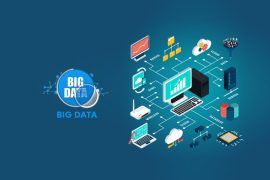Since remote workers are the norm in both Enterprises and SMBs, Teams operate over different time zones, and coaching sales on a larger scale can be a major challenge. The inability of managers to allocate time to meet the individual needs for learning of sales representatives reduces sales training to being reactive when positive or negative results occur.
You must integrate sales enablement and a sales coaching system with AI capabilities to solve this issue. How can AI aid sales coaching? As with the Fourth Industrial Revolution, AI will alter the workplace as technology advances and becomes increasingly advanced.
Sales are prime to benefit from AI changes as there are various methods in which AI could help sales teams without sacrificing humans’ “human touch.” AI offers sales professionals the knowledge and the tools needed to fulfill the job more efficiently and help them meet the goals they set for themselves. What exactly is AI? This article will explore ways AI could help improve the sales team. Let’s get going.
Table of Contents
What is Sales Coaching?

Sales coaching is an ongoing process of formal coaching and education by sales managers to their subordinates to boost sales representatives’ performance.
The sales process coaching includes:
- Onboarding and training sales representatives on how they can meet their goals.
- Modifying behavior that does result in no sales.
- Insisting on sales strategies that ensure success.
- Enhancing the general capabilities of the sales team rather than just doing sales figures.
What is AI and Machine Learning?
Artificial intelligence for sales is a general term that describes advanced technology that helps machines perform complex cognitive tasks. Many smart technology applications of artificial intelligence in sales directly affect the performance of your enterprise.
For example, AI includes deep learning, machine learning, computer vision, and natural language processing. If properly utilized, artificial intelligence for sales is an extremely useful tool that can help your sales organization maintain track of its results, enhance sales cycles and help sales personnel learn essential sales skills.
Advantages of using AI for sales
One of the most significant advantages of AI and automation is that it frees sales reps to spend their time on more impactful activities, like building relationships with potential customers and establishing business relationships.
Furthermore, AI can help sales reps be more effective and efficient by providing useful insights about customer behavior to tailor to their selling needs, particularly for those ready to purchase. Sales AI could help you discern patterns in customers’ behavior, like the times they’re most likely to purchase, what kinds of merchandise they’re interested in, and what type of message they are responding to.
The information gathered could be very useful when formulating targeted strategies for selling. Additionally, it can help you scale your sales operations swiftly and efficiently and also improve your overall effectiveness of leads for sales.
What Generative AI is Important for SaaS Sales Managers?
Generative AIs, like ChatGPT, can create natural-looking text from a specified input. This makes it an indispensable resource for sales executives working in the SaaS sector. The only thing you have to determine the best way to present ChatGPT is the context and the request, as well, as it will serve several roles. In this article, we’ll look at how you can make use of ChatGPT (or similar AI-generated text-based platforms) to simulate client calls, act as a tool for learning to help you develop the marketing materials for your product as well as another context specific to your company for new reps.
It can also assist in identifying weaknesses in the rep’s handling of clients by looking at call transcripts and emails and highlighting problems. Through artificial intelligence, sales managers can streamline various aspects of coaching sales and coaching, freeing time to focus on more strategic work and allowing them to focus only on driving sales and guiding teams to achieve success.
Top 5 Ways to Use Artificial Intelligence (AI) for Sales Training in 2023
1. Support voice analysis
Conversations with clients are an essential element of selling. Modern AI-enabled platforms capture and analyze conversations to give insight into how the top salespeople do in their calls. Reps can record, practice, and improve pitches and demos for an instant AI analysis that gives managers insight into who’s prepared to sell and who needs more training. Field-call analysis helps managers determine and validate the ground realities. The new hires can get up and running faster by using tailored training programs incorporating “best rep” highlight reels. Individuals can benefit from AI. AI provides:
- Qualitative insight into how much coverage is covered.
- The pace of delivery.
- Confidence.
- The tone of voice.
- The dynamics of the conversation.
Thus, a coach can concentrate on particular areas that are problematic for an individual rep, which can save time. The machine-assisted review can be utilized as an option for self-access to learning to help reps get immediate feedback within a non-pressure exercise context.
2. Track performance
The latest sales enablement systems incorporating AI capabilities allow for analysis of over 50 different actions that a typical salesperson and proactively notify managers of weak performers, and offer actual-time sales coaching suggestions that help sales reps start the process, make progress, and conclude many more deals.
Intuitive dashboards let you monitor your sales team’s performance and progress against your sales coaching plan. The dashboard will suggest certain selling coaching assignments for those who need to perform to concentrate. Based on the results of their reps, managers can adjust their sales coaching recommendations for them.
3. Support voice analysis
Customer conversations are an integral aspect of selling. These days, AI-powered platforms capture and analyze conversations for insights into how top performers perform in sales calls.
Reps can record and practice to perfect their demonstrations and pitches to provide an instant AI assessment that will provide management insights on who’s prepared to sell and who needs more training.
Field-call analysis can help managers understand and verify real-world reality. The new hires can be ramped to speedier with custom programs for training using “best rep” highlight reels. Individuals can benefit from AI.
AI provides qualitative insight into the coverage of topics, the delivery pace, confidence, and communication dynamics. Therefore, a coach has to be able to concentrate only on the most problematic areas in an individual rep, which can save time. Automated reviews also help students learn self-accessibly to help reps get instant feedback within a non-pressure exercise setting.
4. Make use of the potential of video
Utilizing the cognitive analysis technique, AI could mimic neural processes humans use to draw insights from unstructured information, like videos and natural language. Applications for this technology can be found in a variety of. For example, AI can perform sentiment and other analyses to assess and analyze sales pitch practice videos made by sales reps. AI can also be employed to improve the in-class feedback facilitators give and provide additional sales training using video demonstrations by the students. Sales reps will receive objective feedback regarding facial expressions, voice tone, inflection, emotional and speaking speed, the complexity of language, and more.
By utilizing this technology, the salesperson will receive quicker appraisals of their performance, which can help them improve their selling techniques. For sales representatives to be trained on handling objections, use AI to create authentic customer interaction simulations using Salesforce’s sales enablement system.
The objection workflow can be built to be a video-based assignment using standardized objections based on actual customer feedback or more dynamic and personalized questions based on each rep’s level of expertise.
5. Drive Customization
AI algorithms ensure that the complete sales coaching curriculum- from finding issues to making suggestions- is tailored to the learner’s needs. Based on this data, we can categorize learners’ learning styles into auditory, visual, or kinesthetic and tailor how reps get training and coaching details.
Auditory learners, for instance, could be taught training materials through audible signals and assessed via auditory. Strategies for improvement could be offered with voice commands via computer or telephone, and AI could be used to determine which suggestions have the greatest impact to ensure that the method can be replicated. Customizing the method can greatly improve the performance of learning tools since they can be customized for every person according to their way of learning.
Conclusion
A fully integrated sales enablement and sales coaching software with AI capabilities can provide personalized sales training at a scale according to each sales representative’s different learning styles. Although AI-enhanced sales coaching can lower the human component, the reverse is true.
AI enhances and improves the individual attention and assistance the in-person sales coach provides, which can drastically reduce most of the sales-related coach burdens imposed on today’s sales executives.






